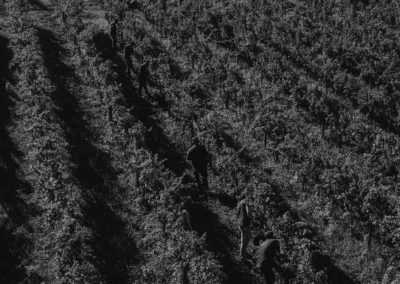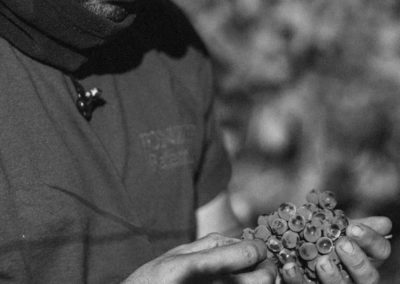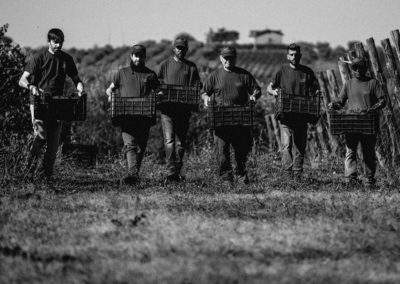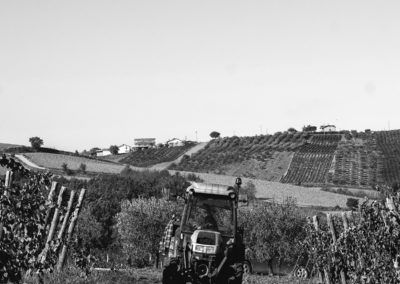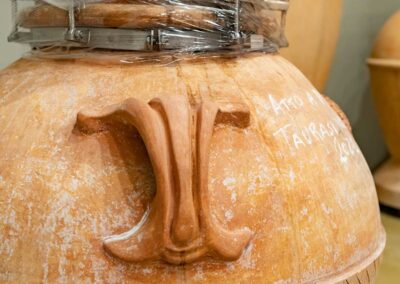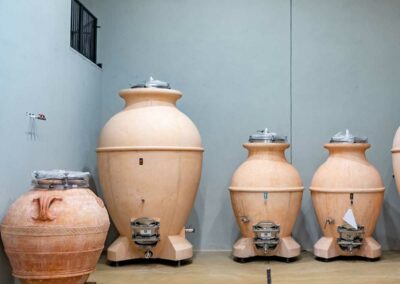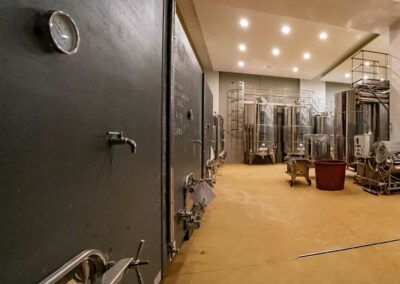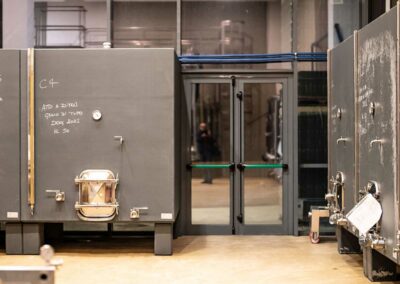Production Philosophy
Sustainability throughout the entire production process, this is the basis of our production philosophy from the vineyard to the cellar.
The soil is treated with agronomic practices such as ripping, subsoiling and shredding without using chemical fertilizers but only organic amendments and green manures.
Pruning is aimed at respecting the plant and at a very low production load to improve the quality of the grapes.
The company’s production activity is concentrated in the direction of sustainable viticulture, evaluating and minimizing the impact of all the agricultural and oenological practices implemented, and having as its main objective the protection of the environment and the health of consumers.
To favor biodiversity in the vineyard as much as possible and to improve the soil structure, the inter-row space is managed with the grassing technique of spontaneous plants. The balance between legumes, grasses and other species is regulated with mowing, while the floristic spectrum of the lawn is monitored from year to year.
No herbicides are used and the phytopathological defense is in accordance with the criteria of integrated pest management, with the utmost attention to the correct distribution of the active ingredients used.
Such an extraordinary territory needs expert hands to enhance its characteristics and produce memorable wines.
Luca D’attoma
THE OENOLOGIST
Founder of Wine Evolution Consulting, internationally renowned oenologist who has marked the last decades of Italian winemaking.
His philosophy is to explore, observe, enhance and experiment with vines and territories. Then, with intuition and foresight, create opportunities through choices dictated by an out-of-the-ordinary skill and a good dose of feeling.
Nature and wine as life companions.
In the Estate
Where possible, rural hedges have been maintained and created ex novo at the edge of the vine and olive tree appeals of the hill, to protect the differences in height, as well as along the edges of the Ifalco stream that crosses the estate. For this purpose, nectariferous plant species have been chosen which give the “good” insects the right foods that increase their ability to fight harmful insects. The sowing of the border areas with herbaceous essences is soon to be carried out, to offer the ideal habitat for pollinating insects.
The latter will thus be able to achieve a perfect balance within the environment in which making it capable of adapting to environmental changes.
It is important for us to protect the biodiversity of the vineyard and therefore to protect all the forms of life that make the soil alive, which in this way becomes resilient to external agents.
We must never forget that there is an intimate relationship between the soil with its mineral, organic, gaseous part and the living organisms that inhabit it.
Soil is not inert matter. The soil is full of LIFE.
In the Cellar
The oenological operations are carried out in perfectly clean containers and environments. The grapes, harvested by hand, are further selected in order to eliminate any residual soil or anomalous grape: this allows to significantly reduce the sulfur content in musts and wines.
The yeasts used for the whites are exogenous and have characteristics suitable for oenological purposes; for the reds they take on a secondary role but, as a precaution, they are still added in smaller quantities.
The concrete, cocciopesto and terracotta containers used for the production of reds and some whites are the fundamental pillars of our project and of our production philosophy.
Terracotta and cocciopesto, as natural materials, ensure temperature control, better oxygenation and a lower olfactory characterization than wood; in this way the varietal character of the vine is fully respected.
As for the concrete tanks, this material is an excellent thermal insulator which guarantees constant temperatures; it has a moderate porosity which allows a minimum passage of air and oxygen for a correct, slow and controlled maturation of the wine and it is also a neutral material which does not transfer aromatic substances to the wine.
Biodiversity
Nature does nothing useless
Aristotle
story of our land

